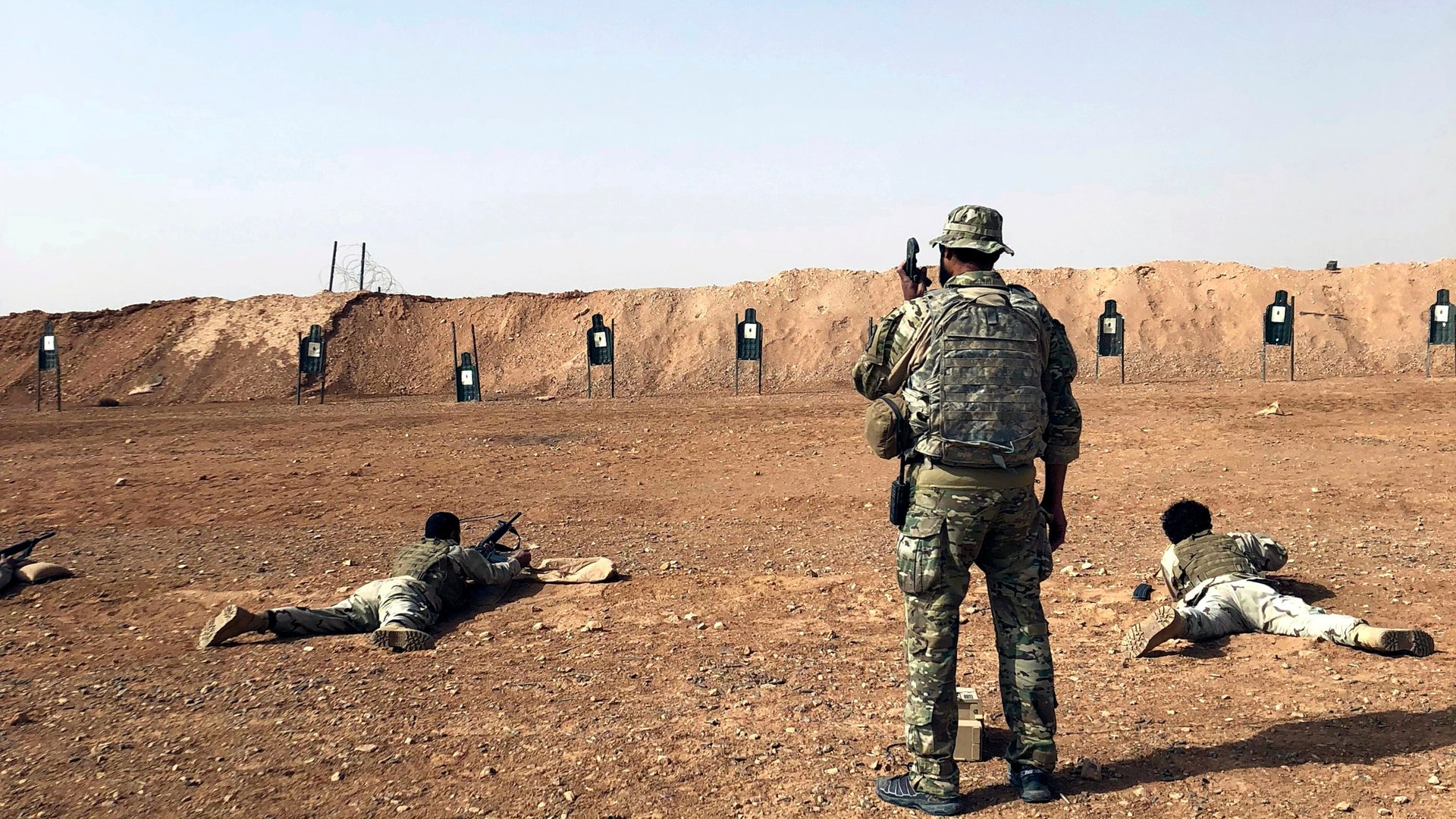Four dead Americans in Syria are a reminder that the US has no strategy there
ISIS took responsibility for a bombing attack in Syria that killed four Americans, the US military confirmed.


ISIS took responsibility for a bombing attack in Syria that killed four Americans, the US military confirmed.
The attack took place during a routine patrol today (Jan. 16) in the city of Manbij in northern Syria, near the border with Turkey. A suicide bomber detonated explosives killing two US service members, a civilian Defense Department employee and a Pentagon contractor, as well two local security officers and 13 civilians, according to local news services.
After the attack, vice president Mike Pence told an audience that ISIS had been defeated, echoing Donald Trump’s argument for pulling an estimated 2,000 US troops from Syria. That shock decision led to the resignations of Trump’s secretary of defense and the US diplomat coordinating the coalition fighting ISIS there.
Trump’s withdrawal proposal remains in limbo, but US forces are still, well, there. Their main tasks are aiding and training local partners, particularly Kurdish militias, to push ISIS out of the territory it claimed as its “caliphate.”
The specifics of US forces’ activities, not well known, likely include acting as spotters for airstrikes and collecting intelligence. US service members have been killed in raids on ISIS prisons, surprise attacks launched by ISIS, and in fighting pitched front-line battles. They’ve also battled Russian mercenaries.
Though ISIS no longer controls major cities, its fighters are still engaging in an effective insurgency and “far from defeated,” according to Seth Jones, a former Pentagon special-forces adviser who researches counter-terrorism at the Center for Security and International Studies.
ISIS can continue using guerrilla tactics the way similar Islamist groups do in Iraq and Afghanistan, and likely won’t be stopped until some kind of legitimate political settlement is reached in Syria. With strongman Bashar al-Assad in control of Syria’s major cities and supported by Russia and Iran, and Turkey set against any new gains for the US-allied Kurds, US strategists face tough choices they just aren’t making.
“I do not know what the US strategy is,” Jones says. “The use of military force, we know this from any military textbook, should be done in pursuit of political objectives. I do not know what the objectives are in Syria is at this point. It’s not entirely clear what the US strategy is because we’ve heard conflicting comments coming from other US officials.”
Ostensibly, the strategy is about battling ISIS, Al Qaeda and other groups that sponsor terror attacks around the world, which Jones says still represents a threat to the US.
“If I had a policy recommendation,” he says “it would be continue to find partners to do the vast majority of the fighting and the dying in these cases, but not to let up and declare victory like president Obama did in 2011 and what president Trump did right now.”
The impatience of Congress with the costs of wars in the region now entering their seventeenth year may make that difficult. Last year, lawmakers questioned whether the fight in Syria is really about terrorism, or confronting Iran, as national security adviser John Bolton suggested when he said US troops would remain there as long as Iranian proxies do.
“That to me sounds like we’re sending our military to Syria to counter Iran, especially because their withdrawal is apparently dependent on actions of Iran, not actions of ISIS or the defeat of ISIS,” Massachusetts Democratic representative Seth Moulton, a veteran of the war in Iraq, said at a September 2018 hearing on Syria.
Battling Iran, as Moulton has pointed out, was not authorized by Congress. The US military continues to fight based on the legal authority that require it to fight terrorism, not another nation. Congress has refused to give the US new authorizations, even when asked by Obama in 2013 for permission to go after Assad forces directly.
“If your son or daughter was in Syria right now and the national security adviser said your daughter can come home when Iran leaves, it seems to me that’s pretty dependent on Iran,” Moulton said. “You have already said that that is illegal under the authorization given from Congress, then I think the administration’s got a big problem.”
Newly ascendant House Democrats are expected to increase scrutiny of the conflict, but divided government—on a partisan level, and the many disagreements within the Trump administration itself—will not make a change of direction simple.